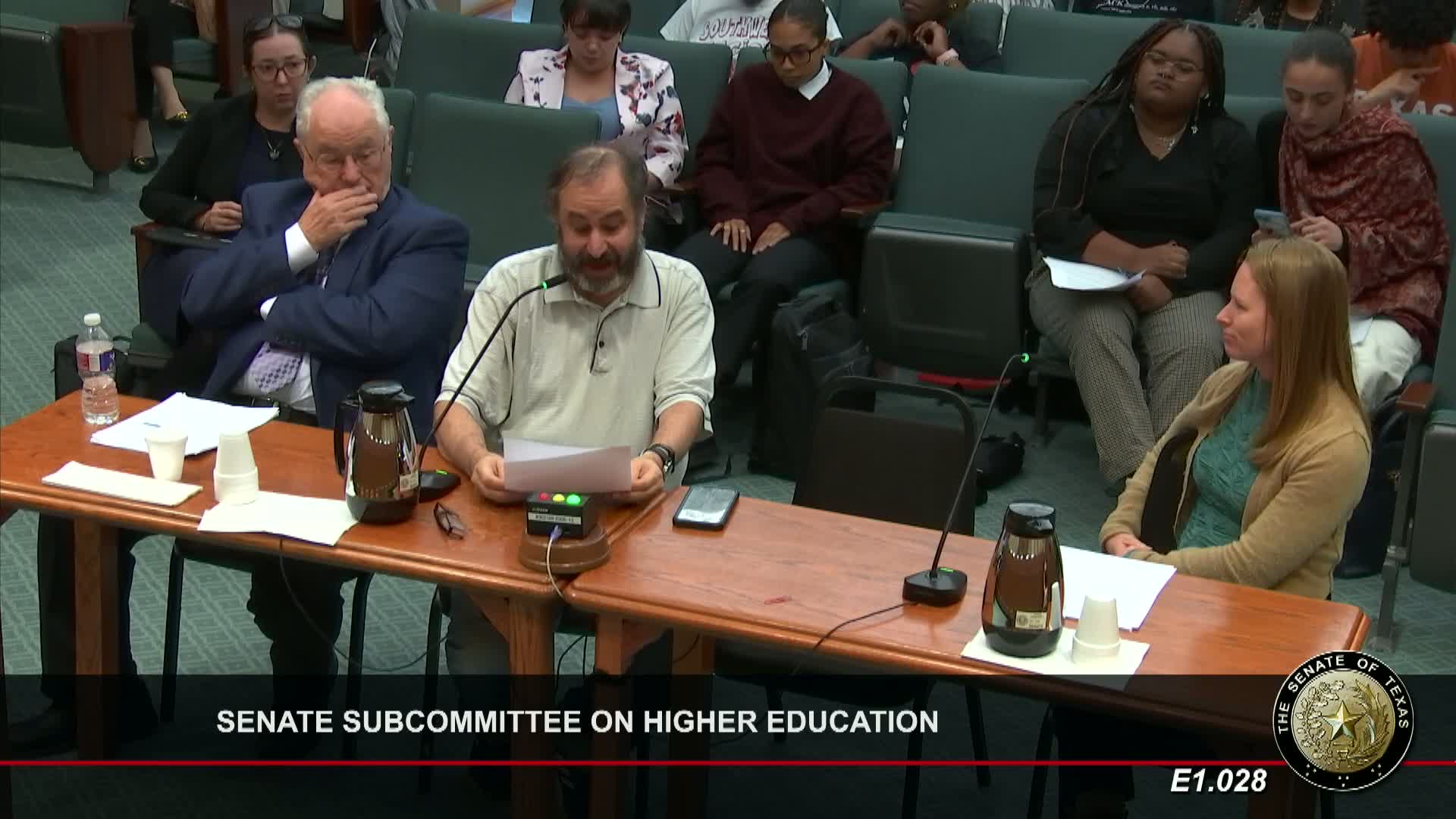Educators defend critical thinking amid DEI controversy
November 11, 2024 | Subcommittee on Higher Education, Committee on Education, Senate, Legislative, Texas
This article was created by AI summarizing key points discussed. AI makes mistakes, so for full details and context, please refer to the video of the full meeting. Please report any errors so we can fix them. Report an error »

During a recent government meeting, educators and students voiced strong support for Diversity, Equity, and Inclusion (DEI) initiatives in Texas education. They argued that these programs enhance critical thinking and prepare students for the workforce, contrary to claims that they undermine academic rigor.
One educator emphasized that courses in government, history, and English include discussions on race and gender as part of a broader understanding of American society. They argued that teaching these topics helps students develop essential skills like critical thinking, reading, and writing. The educator insisted that these skills are vital for success in various fields, including law, engineering, and medicine.
Sampathana Akilakundara, a third-generation Texan and UT Austin alum, shared her personal experience with ethnic studies. She clarified that these programs are not the same as DEI initiatives but are crucial for understanding systemic inequities. Akilakundara highlighted how a course on public education changed her career path and inspired her to work in the nonprofit sector, helping students engage civically.
Max Verado, a first-generation American and graduate student, also spoke in favor of maintaining the current curriculum. He explained that understanding cultural backgrounds is essential for grasping complex political topics. Verado urged the committee not to restrict the powers of university faculty, as their decisions shape a comprehensive educational experience.
The testimonies underscored a shared belief that DEI initiatives and ethnic studies are vital for fostering a well-rounded education that prepares students for real-world challenges.
One educator emphasized that courses in government, history, and English include discussions on race and gender as part of a broader understanding of American society. They argued that teaching these topics helps students develop essential skills like critical thinking, reading, and writing. The educator insisted that these skills are vital for success in various fields, including law, engineering, and medicine.
Sampathana Akilakundara, a third-generation Texan and UT Austin alum, shared her personal experience with ethnic studies. She clarified that these programs are not the same as DEI initiatives but are crucial for understanding systemic inequities. Akilakundara highlighted how a course on public education changed her career path and inspired her to work in the nonprofit sector, helping students engage civically.
Max Verado, a first-generation American and graduate student, also spoke in favor of maintaining the current curriculum. He explained that understanding cultural backgrounds is essential for grasping complex political topics. Verado urged the committee not to restrict the powers of university faculty, as their decisions shape a comprehensive educational experience.
The testimonies underscored a shared belief that DEI initiatives and ethnic studies are vital for fostering a well-rounded education that prepares students for real-world challenges.
View the Full Meeting & All Its Details
This article offers just a summary. Unlock complete video, transcripts, and insights as a Founder Member.
✓
Watch full, unedited meeting videos
✓
Search every word spoken in unlimited transcripts
✓
AI summaries & real-time alerts (all government levels)
✓
Permanent access to expanding government content
30-day money-back guarantee

